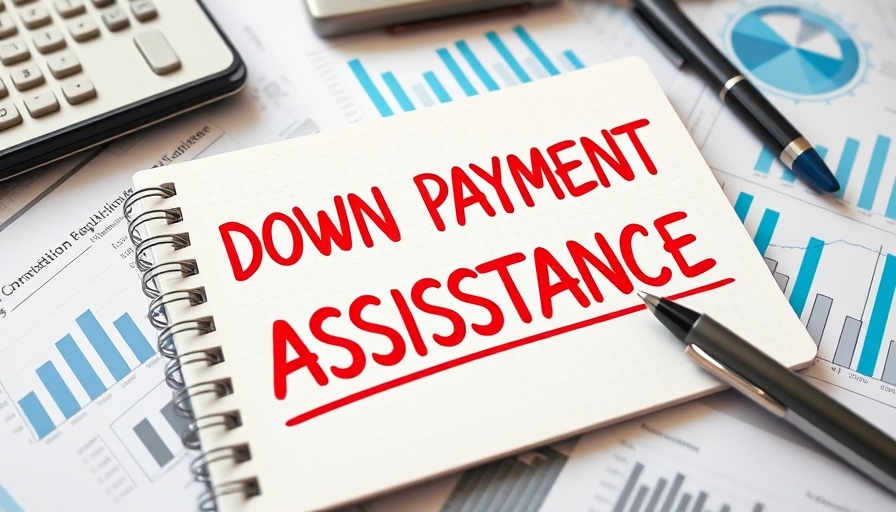
Understanding Down Payment Loans: What You Need to Know
As a prospective homebuyer, the journey to purchasing a house often starts with saving for a down payment. With housing prices soaring, many are left wondering if a loan for a down payment is a viable option. The reality is that while obtaining such a loan is possible, it can complicate your overall financial picture and affect your eligibility for a mortgage.
The Implications of a Down Payment Loan
The primary concern with getting a loan for a down payment is its impact on your debt-to-income (DTI) ratio, a critical component lenders assess when approving a mortgage application. The DTI ratio measures how much of your income goes toward debt payments, and most lenders prefer a ratio of 36% or lower. For example, if your gross monthly income is $4,000 and your total monthly debt payments are $1,500, your DTI would be 37.5%. Such a figure could jeopardize your mortgage application, making lenders hesitant.
Exploring Alternatives to Down Payment Loans
If obtaining a down payment loan can be a slippery slope, what are your alternatives? Thankfully, there are several viable and favorable options to consider that can help you secure your first home without increasing your debt burden significantly.
Down Payment Assistance Programs
Many new and even repeat homebuyers may not be aware of down payment assistance (DPA) programs available across the U.S. These initiatives, often funded by local and federal governments, nonprofits, and community organizations, aim to help you with down payment costs. They can come in the form of grants (which do not need to be repaid) or forgivable loans that become null after a specific period of homeownership.
The Benefits of DPA Programs
Numerous advantages accompany participation in down payment assistance programs. Not only can they reduce up-front costs, but they typically also come with competitive interest rates that can lower your overall mortgage payments. Furthermore, these programs may offer valuable insights and support throughout the home-buying process.
Cost Considerations: Weighing the Pros and Cons
While DPA programs present undeniable advantages, it’s essential to be aware of their limitations. For instance, eligibility often hinges on income levels, location, and whether you are a first-time homebuyer. Moreover, some programs may require that you attend homebuyer education workshops or financial counseling sessions before they provide assistance.
Revisit Your Finances: Assessing Your Readiness
Before venturing into the housing market, it's vital to evaluate your financial situation comprehensively. Understand your current debts, income, and spending habits. Conducting a personal budget analysis can reveal areas to improve and ultimately strengthen your position when approaching lenders.
Collaborate with Real Estate Professionals
Partnering with knowledgeable real estate agents can provide further clarity as you navigate this complex process. They possess not just market insights but also expertise in various programs available across different regions, which can save you time and money as you look for suitable properties.
Take Action: The First Steps Toward Home Ownership
In your pursuit of homeownership, options such as DPA programs can greatly alleviate financial burdens. Begin by researching thoroughly and assessing your eligibility for these supportive initiatives. Armed with knowledge, you’ll be better positioned to make informed decisions that can lead to securing the home of your dreams.
Finally, don't hesitate to consult with real estate agents or financial advisors who can provide tailored advice based on your unique situation. Your journey to owning a home is filled with possibilities, so take proactive steps to make it a reality.
 Add Row
Add Row  Add
Add 



Write A Comment